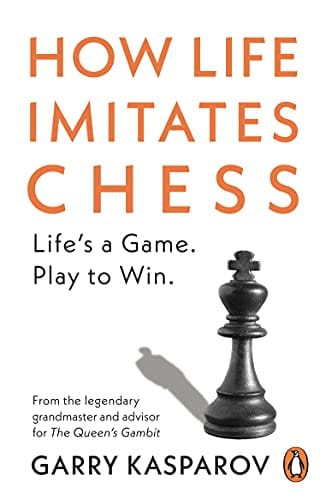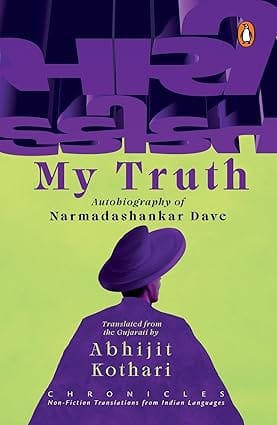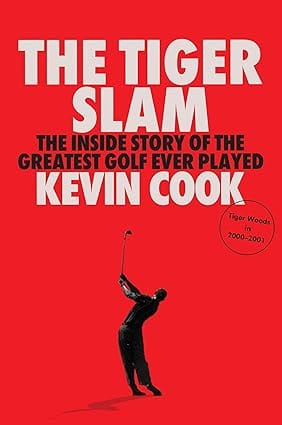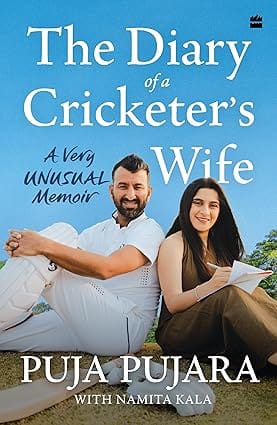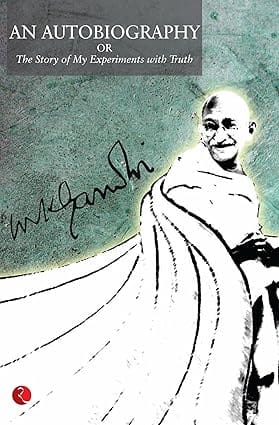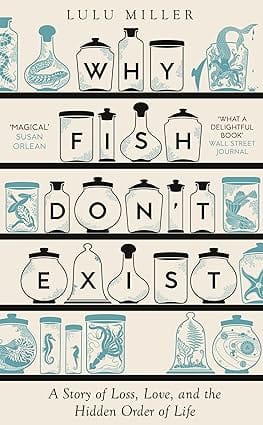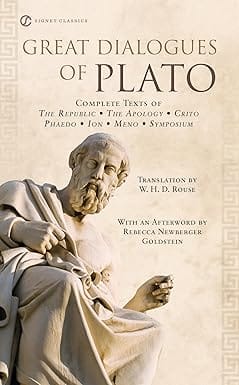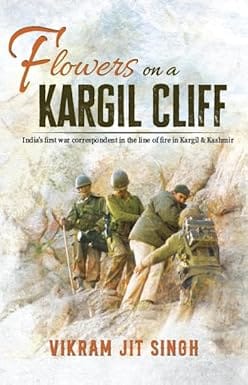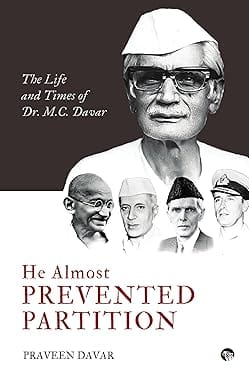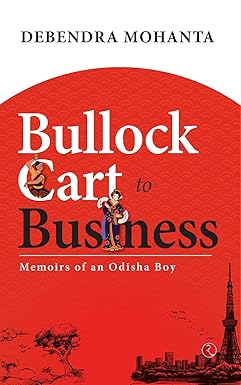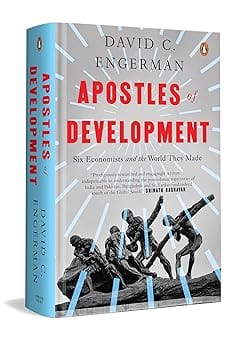-
Contemporary Fiction
- Contemporary Fiction
-
Children
- Children
-
Comics & Graphic Novels
- Comics & Graphic Novels
-
Non-Fiction
- Non-Fiction
-
Fiction
- Fiction
____
*THE STRATEGIES BEHIND A SUCCESSFUL LIFE FROM THE LEGENDARY GRANDMASTER AND ADVISOR TO NETFLIX'S THE QUEEN'S GAMBIT, NOW WITH A NEW FOREWORD*
'In this book, chess is a teacher, and I aim to show it is a great one.'
For over twenty years, Garry Kasparov dominated the world of chess. As the youngest ever undisputed World Champion, known for confounding his opponents at every move and breaking record after record, Kasparov was asked the same question time and time again: what makes a champion?
Drawing on a wealth of revealing and instructive stories, from the most intense moments of his greatest games to the world-changing decisions of history's greatest strategists such as Winston Churchill and Steve Jobs, Kasparov reveals the strategic ways of thinking that always give a player - in the game of life as well as chess - the edge.
PRAISE FOR GARRY KASPAROV
'I've never seen someone with such a feel for dynamics in complex positions' - Magnus Carlsen, World Chess Champion
'There is nothing in chess he has been unable to deal with' - Vladimir Kramnik, Chess Grandmaster
'Mr. Kasparov is not only one of the world's smartest men, he is also among its bravest.' - Hillel Neuer, executive director of UN Watch
Amazon.com Review
Questions for Garry Kasparov
Amazon.com: Why do you think decisiveness is such an elusive skill for people to master? Are there simply too many choices? What’s a good first step for negotiating your options?
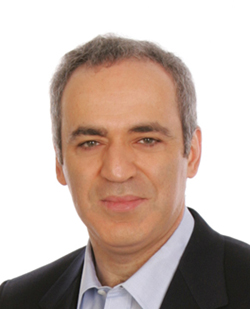 Kasparov: It’s true that today we are faced with greater complexity in almost every aspect of our lives, from global competition in the business world to more options for entertainment. The connected world has flooded us with a limitless supply of data, and equally limitless choices. One of the problems this has created is that it creates the illusion, or delusion, that we can achieve perfection in our decisions by accumulating more information. It’s too easy to blame faulty decisions on imperfect information, but information is always limited in some way, as is the time available to make our decisions. Forget perfection! Decisiveness comes from the courage to trust your instincts. The more you trust, the more you’ll build up that intuition and the more accurate it will become, creating a positive cycle.
Kasparov: It’s true that today we are faced with greater complexity in almost every aspect of our lives, from global competition in the business world to more options for entertainment. The connected world has flooded us with a limitless supply of data, and equally limitless choices. One of the problems this has created is that it creates the illusion, or delusion, that we can achieve perfection in our decisions by accumulating more information. It’s too easy to blame faulty decisions on imperfect information, but information is always limited in some way, as is the time available to make our decisions. Forget perfection! Decisiveness comes from the courage to trust your instincts. The more you trust, the more you’ll build up that intuition and the more accurate it will become, creating a positive cycle.
Before you lay out your options, what we might call considering your next move, you have to have a solid understanding of the present. Evaluation is more important than calculation. Rushing into narrowing things down to a list of options is itself a form of making a choice -- and if you do that, you can prematurely rule out important possibilities. Stop looking ahead for a moment and examine the current state of affairs. Good decisions come from a solid understanding of all the factors that come into play. Once you have tuned your evaluation skills and learned to put the options on hold for a moment you’ll often find that difficult decisions become obvious.
Amazon.com: Taking a holistic view of your career, do you recall the moment you identified your talent for thinking strategically? Is it possible for you to separate that sense of yourself from your identity as a chess champion?
Kasparov: In the world of competitive chess, or any sport for that matter, everything is relative. Your results tell you about your talent. How can you identify a talent that goes untested? That’s one reason I’m so passionate about trying new things and about encouraging others to leave their comfort zones. I was fortunate in that my status as world champion brought me into contact with world leaders, top executives, authors, and other luminaries. I very much enjoyed these exchanges, learning about these other worlds. It also gave me the chance to share my own thoughts, something I’ve never been shy about doing. I’m sure they had to humor my impetuousness on occasion! But often they encouraged me and I discovered I had a knack for making unusual connections, a way of seeing the big picture that wasn’t limited to the chessboard.
Until my retirement from chess in March 2005 it would have been nearly impossible for me to separate myself from my chess identity--other than love for family and friends. But since then I have moved into several entirely different worlds. I’m at the table as a politician, or writing editorials, or lecturing about strategy and intuition in front of business audiences. My former chess career still precedes me in these settings, but they aren’t humoring me anymore! Actually, the biggest step was working on this book, which forced me to consider the mechanics of my own mind beyond chess. I had to ask myself if I really had something to offer and then figure out how to express it concretely. The positive reactions of my lecture audiences also helped in this regard.
Amazon.com: Playing chess competitively no doubt requires huge reserves of passion, patience, and discipline. For those readers who haven’t experienced the kind of rigorous training that competitive chess imparts, can you recommend some good ways to practice strategic thinking?
Kasparov: We all do it every day, the difference is that it takes discipline to become aware of it. In the book I ask the reader to consider all the significant decisions they made that day, that week. You don’t have to be a chess player or an executive to benefit from improving your decision- making process. We make hundreds of decisions just to get through each day. A handful are important enough to keep track of, to look back on critically. Were they successful? Why or why not? We can train ourselves, which is really the only way.
Amazon.com: Did you ever find during a particularly difficult match that it was hard to prevent your emotions from clouding your decision-making ability? What was your strategy for coping with stress or anxiety in that kind of situation?
Kasparov: Emotion is a critical element of decision-making, not a sin always to be avoided. As with anything it is harmful in excess. You learn to focus it and control it the best you can. I’m a very emotional person in and out of chess so this was always a challenge for me. When I sat down at the board against my great rival, Anatoly Karpov, it was a special occasion. I knew it, he knew it, and we both knew the chess world was paying special attention. We had such a long and bitter history that it was impossible not to bring it to the board with us every time we played.
On some occasions this anxiety created negative emotions like doubt. More often it generated greater creative tension, greater supplies of nervous tension, which is a chess player’s lifeblood.
Usually when you are under stress there is a good reason for it. Learning not to get anxious about things beyond your control is a separate issue. So don’t fight stress, use it! Channel that nervous energy into solving the problems. Sitting around worrying isn’t going to achieve anything and the loss of time will often make the problem worse. Even in the worst case, mistakes of action teach you much more than inaction. Forward!
Amazon.com: If you could choose five people, living or dead, to play you in chess, who would they be?
Kasparov: Don’t you know I have retired as a chess player? Well, I will go with you to the middle with two and a half opponents.
4th world chess champion Alexander Alekhine (d. 1946) was my childhood chess idol. The book of his collected games was my constant companion. He was a player of limitless imagination and combativeness. Some aspects of his pre-WWII-era chess would be considered antique today, but his talent is timeless. Just sitting at the board with him to analyze and share ideas would be like a youthful dream made real.
My next player requires a change of date as well, since I am now retired. In the period of 2001-2002 I felt I deserved a rematch against Vladimir Kramnik, who took my title in 2000. I was still the top-rated player in the world, the obvious top challenger. So I would choose a 16-game match against Kramnik--in 2002.
Last on my list is a chessplayer who is most definitely dead. Even if chess has by now passed it by, I would take a tiebreaker match against Deep Blue. I won our first match; the machine won the second. Then IBM made sure there would be no chance for a rematch. This time everything would be out in the open, no black boxes. Of course chess machines are considerably stronger today. It would still be pleasant to gain revenge and set the record straight.
(photo credit: Todd Plitt)
--This text refers to the hardcover edition.
Review
“As a chess player, Mr. Kasparov was more than just a world champion. "How Life Imitates Chess" provides more evidence that he was, and still is, a great chess intellectual....If life truly does imitate chess and Mr. Kasparov somehow overcomes the Russian establishment to reach the summit of his new profession, his latest move may have been a winning one for himself, his countrymen and the rest of the world.” -Wall Street Journal
“Riveting…[Kasparov] makes his debut as a management guru. If retired jocks can write inspirational books, I see no reason to exclude retired chess luminaries from the field of management advice, and executives will find Kasparov's prescriptions useful. The man is a genius, for Pete's sake.” -Portfolio, reviewed by Roger Lowenstein
“A business manual by the champion-turned-activist [is] a no-brainer. The book is serious, readable, and offer[s] real insight...engaging...Kasparov fans will find much to enjoy.” -Publishers Weekly
“[Kasparov is] John Naisbitt with a queen's gambit twist.” -The New Yorker
“It's very rare to have a window onto a unique and fascinating strategic mind. It's even more rare to receive a set of very specific, pragmatic ideas to enhance your own game, and your own business success. Garry Kasparov provides you with both, in a totally accessible, highly engaging, one-of-a-kind volume.” -Adrian J. Slywotzky, Director of Oliver Wyman, and author of The Upside
“When the game's greatest champion gives advice on integrating your chess skills into your business life (as well as the rest of your life), the wise player listens closely. …an evocative tapestry of inspiration and guidance. To support his account, [Kasparov] draws extensively from history, philosophy, art, science, sports, and general culture. He intersperses references, across the intellectual spectrum, from and to the likes of Lao Tzu, Charles Darwin, Marcel Duchamp, George Washington, Franz Kafka, Jack Welch, Michael Jordan, and, of course, Vladimir Putin, his chief political adversary. The result is a volume of cogently packaged lessons that, beyond its import and message, is a pleasure to read…It's clear from this enjoyable offering that the champion's gifts are not confined to the chessboard and those same qualities are now to be employed at making the planet a more livable place. Probably, nobody else has all of Kasparov's special skill sets. Yet, after reading How Life Imitates Chess, with its solid advice to follow one's own path, it's eas to see how the road to personal growth and eventual fulfillment might suddenly come into view, sharp and focused.” -Bruce Pandolfini, Chess Life
“Kasparov has emerged as the most prominent man in what is called the Other Russia--a coalition of Putin's most outspoken critics.” -New Yorker
“One of the most formidable brains of our era….fast-talking, exuberant, indigant one moment and laughing sardonically the next – Kasparov clearly relishes the fight.” -The Washington Post
“The man who would checkmate Vladimir Putin.” -Wall Street Journal
About the Author
Book Description
From AudioFile
- Home
- Non-Fiction
- Biographies
- How Life Imitates Chess
How Life Imitates Chess
SIZE GUIDE
- ISBN: 9781529156294
- Author: Garry Kasparov
- Publisher: Penguin
- Pages: 279
- Format: Paperback
Book Description
____
*THE STRATEGIES BEHIND A SUCCESSFUL LIFE FROM THE LEGENDARY GRANDMASTER AND ADVISOR TO NETFLIX'S THE QUEEN'S GAMBIT, NOW WITH A NEW FOREWORD*
'In this book, chess is a teacher, and I aim to show it is a great one.'
For over twenty years, Garry Kasparov dominated the world of chess. As the youngest ever undisputed World Champion, known for confounding his opponents at every move and breaking record after record, Kasparov was asked the same question time and time again: what makes a champion?
Drawing on a wealth of revealing and instructive stories, from the most intense moments of his greatest games to the world-changing decisions of history's greatest strategists such as Winston Churchill and Steve Jobs, Kasparov reveals the strategic ways of thinking that always give a player - in the game of life as well as chess - the edge.
PRAISE FOR GARRY KASPAROV
'I've never seen someone with such a feel for dynamics in complex positions' - Magnus Carlsen, World Chess Champion
'There is nothing in chess he has been unable to deal with' - Vladimir Kramnik, Chess Grandmaster
'Mr. Kasparov is not only one of the world's smartest men, he is also among its bravest.' - Hillel Neuer, executive director of UN Watch
Amazon.com Review
Questions for Garry Kasparov
Amazon.com: Why do you think decisiveness is such an elusive skill for people to master? Are there simply too many choices? What’s a good first step for negotiating your options?
 Kasparov: It’s true that today we are faced with greater complexity in almost every aspect of our lives, from global competition in the business world to more options for entertainment. The connected world has flooded us with a limitless supply of data, and equally limitless choices. One of the problems this has created is that it creates the illusion, or delusion, that we can achieve perfection in our decisions by accumulating more information. It’s too easy to blame faulty decisions on imperfect information, but information is always limited in some way, as is the time available to make our decisions. Forget perfection! Decisiveness comes from the courage to trust your instincts. The more you trust, the more you’ll build up that intuition and the more accurate it will become, creating a positive cycle.
Kasparov: It’s true that today we are faced with greater complexity in almost every aspect of our lives, from global competition in the business world to more options for entertainment. The connected world has flooded us with a limitless supply of data, and equally limitless choices. One of the problems this has created is that it creates the illusion, or delusion, that we can achieve perfection in our decisions by accumulating more information. It’s too easy to blame faulty decisions on imperfect information, but information is always limited in some way, as is the time available to make our decisions. Forget perfection! Decisiveness comes from the courage to trust your instincts. The more you trust, the more you’ll build up that intuition and the more accurate it will become, creating a positive cycle.
Before you lay out your options, what we might call considering your next move, you have to have a solid understanding of the present. Evaluation is more important than calculation. Rushing into narrowing things down to a list of options is itself a form of making a choice -- and if you do that, you can prematurely rule out important possibilities. Stop looking ahead for a moment and examine the current state of affairs. Good decisions come from a solid understanding of all the factors that come into play. Once you have tuned your evaluation skills and learned to put the options on hold for a moment you’ll often find that difficult decisions become obvious.
Amazon.com: Taking a holistic view of your career, do you recall the moment you identified your talent for thinking strategically? Is it possible for you to separate that sense of yourself from your identity as a chess champion?
Kasparov: In the world of competitive chess, or any sport for that matter, everything is relative. Your results tell you about your talent. How can you identify a talent that goes untested? That’s one reason I’m so passionate about trying new things and about encouraging others to leave their comfort zones. I was fortunate in that my status as world champion brought me into contact with world leaders, top executives, authors, and other luminaries. I very much enjoyed these exchanges, learning about these other worlds. It also gave me the chance to share my own thoughts, something I’ve never been shy about doing. I’m sure they had to humor my impetuousness on occasion! But often they encouraged me and I discovered I had a knack for making unusual connections, a way of seeing the big picture that wasn’t limited to the chessboard.
Until my retirement from chess in March 2005 it would have been nearly impossible for me to separate myself from my chess identity--other than love for family and friends. But since then I have moved into several entirely different worlds. I’m at the table as a politician, or writing editorials, or lecturing about strategy and intuition in front of business audiences. My former chess career still precedes me in these settings, but they aren’t humoring me anymore! Actually, the biggest step was working on this book, which forced me to consider the mechanics of my own mind beyond chess. I had to ask myself if I really had something to offer and then figure out how to express it concretely. The positive reactions of my lecture audiences also helped in this regard.
Amazon.com: Playing chess competitively no doubt requires huge reserves of passion, patience, and discipline. For those readers who haven’t experienced the kind of rigorous training that competitive chess imparts, can you recommend some good ways to practice strategic thinking?
Kasparov: We all do it every day, the difference is that it takes discipline to become aware of it. In the book I ask the reader to consider all the significant decisions they made that day, that week. You don’t have to be a chess player or an executive to benefit from improving your decision- making process. We make hundreds of decisions just to get through each day. A handful are important enough to keep track of, to look back on critically. Were they successful? Why or why not? We can train ourselves, which is really the only way.
Amazon.com: Did you ever find during a particularly difficult match that it was hard to prevent your emotions from clouding your decision-making ability? What was your strategy for coping with stress or anxiety in that kind of situation?
Kasparov: Emotion is a critical element of decision-making, not a sin always to be avoided. As with anything it is harmful in excess. You learn to focus it and control it the best you can. I’m a very emotional person in and out of chess so this was always a challenge for me. When I sat down at the board against my great rival, Anatoly Karpov, it was a special occasion. I knew it, he knew it, and we both knew the chess world was paying special attention. We had such a long and bitter history that it was impossible not to bring it to the board with us every time we played.
On some occasions this anxiety created negative emotions like doubt. More often it generated greater creative tension, greater supplies of nervous tension, which is a chess player’s lifeblood.
Usually when you are under stress there is a good reason for it. Learning not to get anxious about things beyond your control is a separate issue. So don’t fight stress, use it! Channel that nervous energy into solving the problems. Sitting around worrying isn’t going to achieve anything and the loss of time will often make the problem worse. Even in the worst case, mistakes of action teach you much more than inaction. Forward!
Amazon.com: If you could choose five people, living or dead, to play you in chess, who would they be?
Kasparov: Don’t you know I have retired as a chess player? Well, I will go with you to the middle with two and a half opponents.
4th world chess champion Alexander Alekhine (d. 1946) was my childhood chess idol. The book of his collected games was my constant companion. He was a player of limitless imagination and combativeness. Some aspects of his pre-WWII-era chess would be considered antique today, but his talent is timeless. Just sitting at the board with him to analyze and share ideas would be like a youthful dream made real.
My next player requires a change of date as well, since I am now retired. In the period of 2001-2002 I felt I deserved a rematch against Vladimir Kramnik, who took my title in 2000. I was still the top-rated player in the world, the obvious top challenger. So I would choose a 16-game match against Kramnik--in 2002.
Last on my list is a chessplayer who is most definitely dead. Even if chess has by now passed it by, I would take a tiebreaker match against Deep Blue. I won our first match; the machine won the second. Then IBM made sure there would be no chance for a rematch. This time everything would be out in the open, no black boxes. Of course chess machines are considerably stronger today. It would still be pleasant to gain revenge and set the record straight.
(photo credit: Todd Plitt)
--This text refers to the hardcover edition.
Review
“As a chess player, Mr. Kasparov was more than just a world champion. "How Life Imitates Chess" provides more evidence that he was, and still is, a great chess intellectual....If life truly does imitate chess and Mr. Kasparov somehow overcomes the Russian establishment to reach the summit of his new profession, his latest move may have been a winning one for himself, his countrymen and the rest of the world.” -Wall Street Journal
“Riveting…[Kasparov] makes his debut as a management guru. If retired jocks can write inspirational books, I see no reason to exclude retired chess luminaries from the field of management advice, and executives will find Kasparov's prescriptions useful. The man is a genius, for Pete's sake.” -Portfolio, reviewed by Roger Lowenstein
“A business manual by the champion-turned-activist [is] a no-brainer. The book is serious, readable, and offer[s] real insight...engaging...Kasparov fans will find much to enjoy.” -Publishers Weekly
“[Kasparov is] John Naisbitt with a queen's gambit twist.” -The New Yorker
“It's very rare to have a window onto a unique and fascinating strategic mind. It's even more rare to receive a set of very specific, pragmatic ideas to enhance your own game, and your own business success. Garry Kasparov provides you with both, in a totally accessible, highly engaging, one-of-a-kind volume.” -Adrian J. Slywotzky, Director of Oliver Wyman, and author of The Upside
“When the game's greatest champion gives advice on integrating your chess skills into your business life (as well as the rest of your life), the wise player listens closely. …an evocative tapestry of inspiration and guidance. To support his account, [Kasparov] draws extensively from history, philosophy, art, science, sports, and general culture. He intersperses references, across the intellectual spectrum, from and to the likes of Lao Tzu, Charles Darwin, Marcel Duchamp, George Washington, Franz Kafka, Jack Welch, Michael Jordan, and, of course, Vladimir Putin, his chief political adversary. The result is a volume of cogently packaged lessons that, beyond its import and message, is a pleasure to read…It's clear from this enjoyable offering that the champion's gifts are not confined to the chessboard and those same qualities are now to be employed at making the planet a more livable place. Probably, nobody else has all of Kasparov's special skill sets. Yet, after reading How Life Imitates Chess, with its solid advice to follow one's own path, it's eas to see how the road to personal growth and eventual fulfillment might suddenly come into view, sharp and focused.” -Bruce Pandolfini, Chess Life
“Kasparov has emerged as the most prominent man in what is called the Other Russia--a coalition of Putin's most outspoken critics.” -New Yorker
“One of the most formidable brains of our era….fast-talking, exuberant, indigant one moment and laughing sardonically the next – Kasparov clearly relishes the fight.” -The Washington Post
“The man who would checkmate Vladimir Putin.” -Wall Street Journal
About the Author
Book Description
From AudioFile
Related Books
User reviews
NEWSLETTER
Subscribe to get Email Updates!
Thanks for subscribing.
Your response has been recorded.

India's Iconic & Independent Book Store offering a vast selection of books across a variety of genres Since 1978.
"We Believe In The Power of Books" Our mission is to make books accessible to everyone, and to cultivate a culture of reading and learning. We strive to provide a wide range of books, from classic literature, sci-fi and fantasy, to graphic novels, biographies and self-help books, so that everyone can find something to read.
Whether you’re looking for your next great read, a gift for someone special, or just browsing, Midland is here to make your book-buying experience easy and enjoyable.
We are shipping pan India and across the world.
For Bulk Order / Corporate Gifting
 +91 9818282497 |
+91 9818282497 |  [email protected]
[email protected]
Click To Know More
INFORMATION
POLICIES
ACCOUNT
QUICK LINKS
ADDRESS
Shop No.20, Aurobindo Palace Market, Near Church, New Delhi

